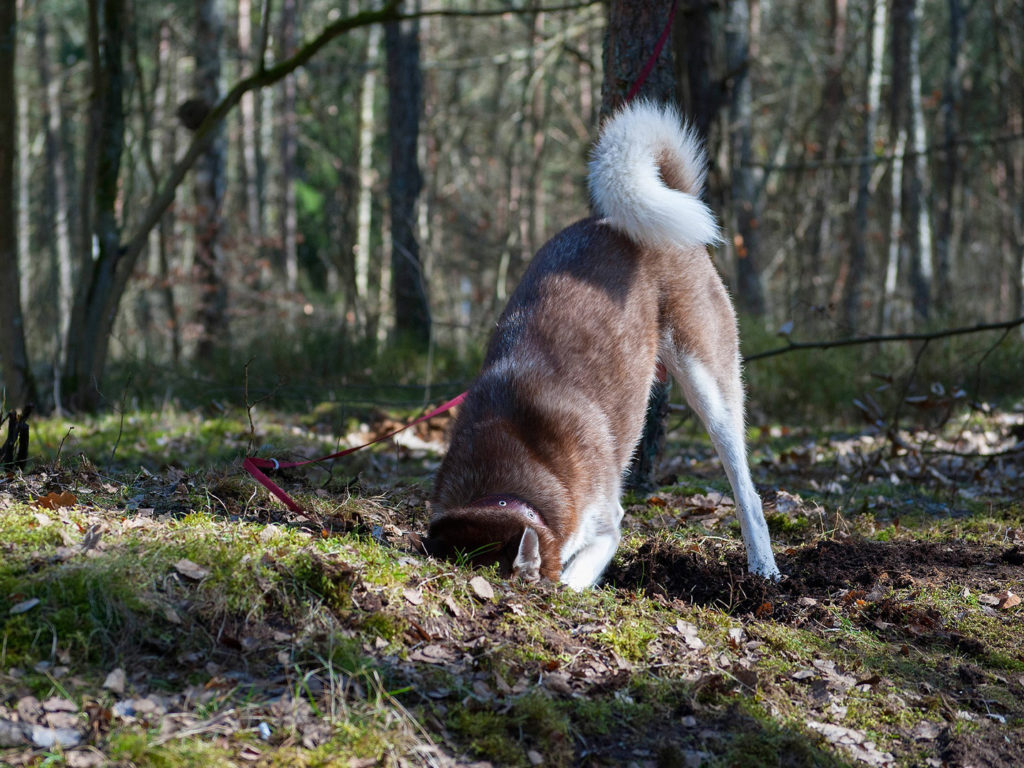Unearthing The Truth About Scorpions: How To Prevent Stings

Our curious cats and daredevil dogs are always eager to investigate anything moving across the carpet or in the grass.
If that object of your pets’ curiosity is a scorpion, your pet may find itself in a situation worse than just getting painfully stung—your animal can be in a potentially dangerous situation.
Dr. Dalton Hindmarsh, a veterinary resident at the Texas A&M College of Veterinary Medicine & Biomedical Sciences (CVMBS), explains what our pets may encounter when it comes to scorpions and how to treat, as well as prevent, their painful stings.
Texas is home to more than 18 species of these eight-legged critters, which can be recognized by their distinctive curved tail that curls up and over its back.
To avoid being stung by scorpions, it is helpful to understand their habits as well as their natural habitats; they are naturally attracted to humid conditions and are particularly active during the rainy season.
“Scorpions are nocturnal and come out at night. During hot, dry weather, scorpions may seek water or shelter indoors,” Hindmarsh said. “Their bodies are flat, which allows them to hide in small cracks, under rocks, wood piles, or other debris.”
Because of this, pet owners often do not see scorpions lurking around and may only learn of their pet’s proximity to one after hearing a yelp.
“The best way to minimize the risk of scorpion encounters is to keep debris away from the house, sealing cracks/crevices, and treating with pesticides,” Hindmarsh said.
And for the pooches or kitties that cannot resist a good dig, Hindmarsh advises keeping a watchful eye on what they could unearth.
Although most scorpion stings are not lethal, they do have a common factor—they are painful. To respond appropriately to scorpion stings, it is crucial to recognize the symptoms, which almost always include lameness or limping.
“Scorpion stings cause a painful numbness to tingling sensation, which usually resolves in a few hours,” Hindmarsh said. “Some dogs may also develop a slight self-resolving cough.
“It is also possible for an allergic reaction to develop, which could range from mild, localized swelling, hives, and itching to life threatening vomiting, diarrhea, respiratory distress, and/or collapse,” he said.
There is a wide range of severity when it comes to scorpion stings, so it is imperative to stay sharp on scorpion prevention and take quick action when necessary.
Veterinary care should be sought immediately if pet owners see any of these signs or suspect their pet has been stung by a scorpion. It is imperative that scorpion stings be treated urgently, Hindmarsh said, even though the majority are not fatal.
“Owners should monitor for signs of an allergic reaction and seek further veterinary care if an allergic reaction develops or their pet has progressive pain (i.e. continued limping),” Hindmarsh advised. “I would not recommend giving any over-the-counter medications without first consulting a veterinarian.”
Scorpion stings can be scary, but by taking the right precautions and veterinary actions, pet owners are much more capable of taking the bite out of the scorpion and returning the bark back to their furry friends.
Pet Talk is a service of the College of Veterinary Medicine & Biomedical Sciences, Texas A&M University. Stories can be viewed on the web at vetmed.tamu.edu/news/pet-talk. Suggestions for future topics may be directed to vmbs-editor@tamu.edu.


